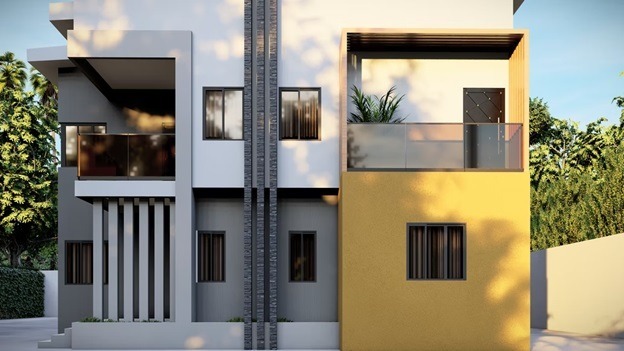Condos are a great option for people who want to live in the city, but they’re often misunderstood. There are many myths and misconceptions surrounding condo living, and in this post, we’ll straighten up the facts to help you decide better.
You should live in a condo because they are more affordable than single-family homes, which means that you can buy or rent one without taking out a second mortgage on your house. They are also easier to maintain than single-family homes, so you don’t have to worry about debris removal or lawn mowing. Those tasks are handled by the condo association and not by you.
Condos also provide the opportunity for community living in a way that single-family homes cannot, with things like shared spaces and social events designed for residents’ enjoyment.
Whether you’re thinking about buying one or just want to learn more about condo living, this article will tell you everything you need to know.
All Condos are the Same
One of the most common misconceptions about condos is that they are all the same. But in reality, condos can be many different things. Condos can come in different sizes and designs. They can also be on other floors and have many amenities.
There are many different kinds of condos, but the main differentiators are the type of building and the number of units in it.
Condominiums can be categorized by their building type: high-rise, mid-rise, or low-rise. High-rise condominiums are typically 20 stories or more; mid-rise condos are between 6 and 19 levels, and low-rise condos are less than five stories.
Within each building type, there are also varying numbers of units. A single-unit condo is a one-room apartment within a larger structure owned by one person (the unit owner). A duplex condo is an apartment with two bedrooms or more, which shares ownership with another unit in the same structure. A triplex condo has three or more bedrooms that share ownership with other units in the same structure.
So yes, there’s much more to choosing a condo than finding one with good views or proximity to public transportation.
Condos are Only for Young Professionals
Condos are great for people at all stages of their lives and careers. Many people who buy condos are empty nesters who want to downsize from their larger homes after their children leave for college or work full time. This means that there’s often more space available than would be found in other types of housing options.
Additionally, condos tend to be closer to public transit, making it easier to get around without owning a car or relying on friends and family members for rides when necessary – something that could be challenging if you’re older. This means that your transportation costs will be significantly lower than if you lived somewhere else.
Condos are Apartment-Style Buildings
Condos are not apartments. While condos and apartment buildings share some similarities, the two have many significant differences. Condos are more like townhouses than apartments because you own them and have a private yard, entrance, and driveway.
Condos are also not apartments because they don’t come with nearly as much maintenance as an apartment building would require. There is no landlord to tend to your needs—only yourself.
You Don’t Own Anything If You Live in a Condo
People think that when they buy a condo, all their belongings will be owned by the property owner. This is not true! All your personal belongings are yours, and you own them for life.
You have complete ownership over your unit from top to bottom and everything inside it, including floors, walls, and ceiling finishes. You can change anything in your unit at any time if you wish. You only need to ensure that these changes comply with current building code requirements and federal law on accessibility provisions.
Parking spaces in condominium buildings are considered “common elements,” like hallways or elevators. This means they belong jointly to everyone who purchased a unit in the building. This is like any other shared resource within a group setting, such as a restaurant or a hotel suite. All amenities will be shared among its occupants.
All Condo Fees are Expensive
Condo fees are often confused with homeowner association (HOA) fees. The main difference is that a condo fee covers things specific to your unit, and an HOA fee covers shared spaces in the community. The latter can include amenities like a swimming pool or clubhouse, maintenance of common areas such as landscaping and roads, and other services like lawn care or snow removal.
In addition to understanding what you’re paying for within your particular community (and whether there are additional costs beyond these), it’s essential to consider what’s included in condo fees versus property taxes. Unlike condos, where property taxes are paid on behalf of each owner based on their unit size, homeowners pay taxes directly out of their own pockets when they purchase a home.
Condo Board Can Do Whatever it Wants
This is another common misconception in condo living. The condo board is bound by the covenants with board members, association meetings, conditions, and restrictions (CC&Rs). This sets out the rules for how owners may use their property. For example, the CC&Rs might require owners to get approval from other owners before painting their balconies or adding new windows.
In addition to these restrictions, the condo board can’t make rules that violate existing laws—like starting fires on balconies or using them as storage areas.
You Have to Live On Top Of Your Neighbors
Condos are either stacked or townhome style. Condos can look like apartment buildings, but they tend to be more expensive and private than apartments because they have common areas separate from individual units.
Stacked condos are just like apartment buildings but with fewer units per floor. They’re also called multi-family homes (MFH), which you may see on an MLS listing in some areas of the country. With stacked condos, each unit has its own front door and access to its individual balcony or patio area shared by residents.
Townhomes have front doors onto a common area such as a courtyard or sidewalk where there’s walking traffic rather than cars speeding by. This gives residents more privacy than they would get if they lived in an apartment building with no separation between each unit’s front door and street traffic noise and pollution.
Condo Living is Less Safe Than Living in a House
Condo living is actually safer than house living. Condos have security features you wouldn’t usually have in a house. Because of this, they tend to have lesser crime rates than subdivisions and other living areas.
If you’re looking for security, condos are a great option. Many condos have security cameras and guards on site, which can help deter potential criminals from causing trouble in your building. Also, condo buildings usually have an organized system in place for handling emergencies or other concerns—like when someone’s car battery dies overnight.
Debunking Misconceptions
There are a lot of bad ideas about condos, but they aren’t all true. Condos are not necessarily more expensive than apartments; they’re just a different type of living situation with different pros and cons. Some people think condos are less safe than houses because their neighbors are nearby, but this isn’t the case.
Some people think that condo boards can be intrusive or restrictive. Still, in most cases, the board is made up of volunteers who have been elected to help protect your investment and manage the community for everyone’s benefit.
Condos are for people who want to live in a community without dealing with the stress of managing a house. If you’re looking for a place to raise a family, you’ll find that condos are a great option. Condos are typically located in neighborhoods close to parks and schools, making them ideal for families with children.
Condos also offer residents the opportunity to meet new people and make new friends. They usually have a community center where residents can go to socialize and get involved in activities such as sports or book clubs.
Invest in a Condo Today!
These are just a few common misconceptions about condo living, but the most important takeaway is that they’re not true. Condos have many advantages over other housing types, including lower maintenance costs, stronger safety features, and more privacy than apartments or townhouses.
Condos are also quieter than the communities where these traditional houses are situated, allowing their residents to rest better. If you check out Metrotowne’s condo in Las Piñas, you would truly appreciate the convenience, peace, and advantages of condo living.
If you’re considering buying a condo as an investment or as part of your retirement plan, don’t let preconceived notions get in your way.Invest in a condo today!




